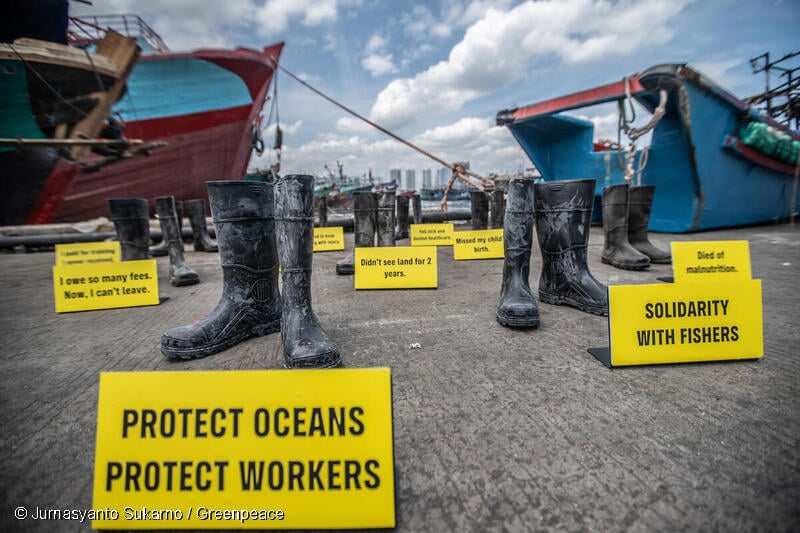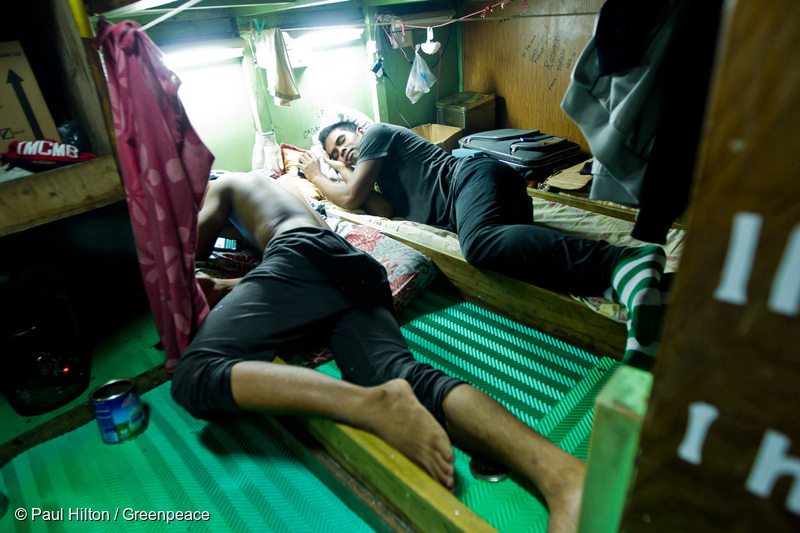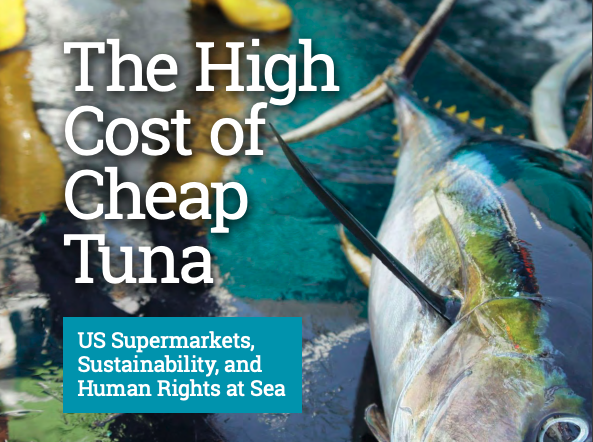Nine people who worked on board the distant water fishing vessel Da Wang, have been indicted on charges relating to forced labor and physical abuse. The vessel captain, first mate, and seven others were charged by Taiwan’s Kaohsiung District Prosecutors Office for their suspected involvement in the abuse of 20 Indonesian and Filipino workers. Prosecutors allege that the migrant fishers were beaten and forced to work up to 20 hours a day. It is also alleged that some Muslim employees were given no choice but to eat pork, which is strictly prohibited by their religion.
Nine people who worked on board the distant water fishing vessel Da Wang, have been indicted on charges relating to forced labor and physical abuse. The vessel captain, first mate, and seven others were charged by Taiwan’s Kaohsiung District Prosecutors Office for their suspected involvement in the abuse of 20 Indonesian and Filipino workers. Prosecutors allege that the migrant fishers were beaten and forced to work up to 20 hours a day. It is also alleged that some Muslim employees were given no choice but to eat pork, which is strictly prohibited by their religion.
Taipei, April 22 – Nine people who worked on board the distant water fishing vessel Da Wang, have been indicted on charges relating to forced labor and physical abuse. The vessel captain, first mate, and seven others were charged by Taiwan’s Kaohsiung District Prosecutors Office for their suspected involvement in the abuse of 20 Indonesian and Filipino workers. Prosecutors allege that the migrant fishers were beaten and forced to work up to 20 hours a day. It is also alleged that some Muslim employees were given no choice but to eat pork, which is strictly prohibited by their religion.[1],[2]
The Da Wang, which is Vanuatu flagged, but owned and operated by the Taiwanese company Yong Feng Fishery Ltd, was named in Greenpeace Southeast Asia’s 2019 report, “Seabound: The Journey to Modern Slavery on the High Seas” and again in its 2021 follow up report “Forced Labour at Sea: The Case of Indonesian Migrant Fishers.” The Da Wang has also been linked as a supplier to Taiwanese tuna trading company FCF, which owns the US consumer brand, Bumblebee Seafoods.
J.Park, Senior Oceans Campaigner for Greenpeace USA, said:
“The high seas fishing industry uses cost-cutting and illegal fishing tactics, forced labor, and other human rights abuses to stay profitable. This indictment on the nine people who worked on the Da Wang is indicative of a wider problem. US grocery stores and consumer brands like Bumble Bee have a responsibility to ensure their products are free from human rights violations.”
Yuton Lee, Oceans Campaigner from Greenpeace East Asia’s Taipei Office, said:
“We welcome the investigation and law enforcement on the Da Wang and the people involved. But this is just one vessel in a sea of many that are also potentially carrying out horrendous human rights abuse on its workers. To prevent such tragedy from happening again, Taiwan must amend its related laws and regulations and conduct port inspections on both Taiwanese-owned and -flagged, as well as Taiwanese-owned and Flag Of Convenience vessels. In particular, Taiwan should ensure its laws and regulations are in line with the International Labour Organisation’s C-188 convention, set minimum working standards for all fishers, and conduct law-binding labor inspections in its ports.”[3]
The Da Wang has been notorious for its alleged use of forced labor in its operations. In January the US government handed the Da Wang an official Finding for committing all 11 of the International Labor Organization’s indicators of forced labor. In Greenpeace Southeast Asia’s Seabound report, a crew member stated:
“When the Fishing Master was angry, he hit my friend’s head near his left ear. After that he was forced to continue working until the work was finished and only then was he allowed to rest. In the morning when we woke up for breakfast, we found him dead in his room.” [4]
ENDS
[1] Press release from the Taiwan Kaohsiung District Prosecutors Office (in Chinese) here.
[2] English news report here.
[3] The ILO’s C-188 convention ensures compliance and enforcement for all fishers and fishing vessels in commercial work to have decent conditions of work, including accommodation and food; occupational safety and health protection; medical care, and social security. More information here.
[4] Greenpeace Southeast Asia, “Seabound: The Journey to Modern Slavery on the High Seas”, p32.
Contact
Moffy Chen, Greenpeace East Asia’s Taipei Office Communication Manager, P: +886-987-060-898, E: [email protected]
Shuk-Wah Chung, Communications Lead, global fisheries campaign with Greenpeace International, (+852) 5420 4186, [email protected]



